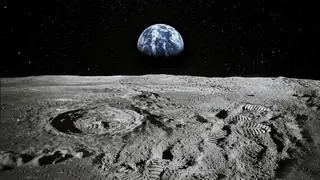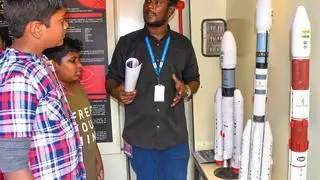Scientists often communicate in a language which is not easily understood by lay persons or non-scientists although their work may have great societal significance. To encourage science students and young scientists to become communicators, the Department of Science and Technology has launched a nationwide campaign named AWSAR or ‘Augmenting Writing Skills for Articulating Research’.
The programme is aimed at harnessing the potential of PhD scholars and post-doctoral fellows for popular science writing through newspapers, magazines, blogs and various social media platforms. This will not only make young researchers think about their research work differently but also bring out good science stories in public domain.
“The prime objective of the programme is to utilize latent potential of young PhD scholars and post-doctoral fellows towards science popularization and communication and through them promote scientific temperament in the society,” explained Dr Rashmi Sharma, scientist in the Science for Equity, Empowerment and Development (SEED) division of DST.
Under the initiative, PhD students and post-doctoral scholars in all science and technology streams would be encouraged to write at least one popular science story during the tenancy of their scholarship, and to participate in a national competition. The best 100 entries from PhD scholars will get an incentive of ₹10,000 each, along with a certificate. Their work also stands a chance being published in newspapers and magazines.
Out of the hundred best entries, top three science stories would be awarded cash prizes of ₹1 lakh, ₹50,000 and ₹25,000 respectively. In addition, 20 entries would be selected from stories submitted exclusively by post-doctoral fellows relating to their line of research. These scholars will get incentive of ₹10,000 each along with a certificate, while the most outstanding story out of this group would be given a cash award of ₹1 lakh.
The selection will be done by a panel of scientists and science writers based on factors like accuracy, clarity, insightfulness, and resourcefulness. The word limit for the popular science story will be in between 1,000-1,500 words, and they can be in English or Hindi. Technical and research papers will not qualify for this competition. The stories can be submitted from August 15 till September 30, 2018 after online registration at www.awsar-dst.in . The Awards will be presented on the National Science Day, February 28 next year.
It is proposed to hold science writing workshops in different cities to train researchers in basics of popular science writing. The workshops will be conducted by communication experts who will provide participants tips for popular science writing.
Twitter handle: @dineshcsharma
(India Science Wire)








Comments
Comments have to be in English, and in full sentences. They cannot be abusive or personal. Please abide by our community guidelines for posting your comments.
We have migrated to a new commenting platform. If you are already a registered user of TheHindu Businessline and logged in, you may continue to engage with our articles. If you do not have an account please register and login to post comments. Users can access their older comments by logging into their accounts on Vuukle.